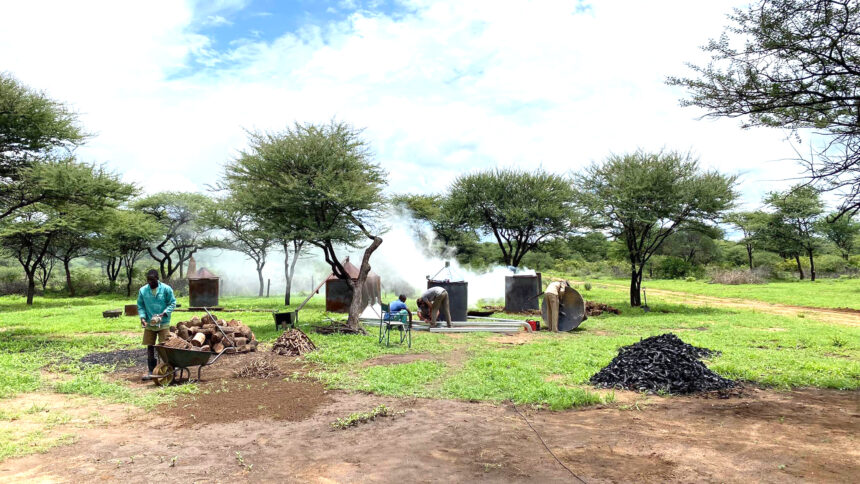The domestic charcoal industry is grappling with pressing challenges, particularly concerning the treatment of undocumented workers.
A recent report on the industry reveals a significant number of charcoal cutters and burners on farms are undocumented Angolan immigrants, primarily from the Ovazemba indigenous community.
The report stipulates that many of these workers often find themselves without passports or identity documents, which often results in a lack of signed employment contracts, lower wages, and unfair deductions.
The majority of undocumented workers remain largely unaware of their rights and the market rates for their labour, leaving them vulnerable to exploitation by employers.
It is widely-recognised that working in the charcoal industry is one of the toughest jobs available, exposing individuals to extreme heat and demanding physical labour.
Charcoal-cutters and burners endure gruelling conditions, often labouring for long hours under the scorching sun, while managing the intense heat generated by the charcoal production process.
The findings are detailed in the Charcoal Industry Sustainability and Diversification Final Scoping report.
It was published in October 2024, and submitted to the National Planning Commission.
The report highlights an urgent need for reform within this sector.
The study aims to enhance diversity and sustainability in Namibia’s charcoal industry by fostering an inclusive environment that supports start-ups and indigenous producers.
By evaluating regulatory frameworks and identifying the needs of various stakeholders, the report seeks to provide comprehensive insights and actionable recommendations that promote equitable participation in the industry.
“Landowners should ensure that workers are documented through the Green Card initiative, issued by the Angolan Embassy, to verify workers’ legal status in Namibia, known as the consular identity card. Landowners should be held accountable for undocumented workers on their farms, and fined if an undocumented worker is found,” the report recommends.
Members of the Ovazemba community last week voiced frustration over what they termed continued marginalisation.
During a protest in Windhoek, they read a petition addressed to President Nangolo Mbumba.
They called for official recognition as a distinct ethnic group.
Protestors listed challenges their communities face due to a lack of formal acknowledgement.
One of the protestors, Fenny Kamosho, described the group’s struggles, saying other ethnic groups often overshadow their unique identity.
She emphasised the lack of recognition has far-reaching implications for the community, ranging from the absence of basic services in their language, to their categorisation under other ethnic groups in official records.
Protestors called on government to address their grievances.
They argued that recognition paves the way for better representation, improved access to services, and the preservation of cultural heritage.
Other challenges
The report highlights significant shortcomings in the policies and regulatory frameworks governing Namibia’s charcoal industry, which hinder inclusive participation from startups and indigenous producers.
Key issues identified include the absence of national standards for the charcoal industry, a low annual production threshold set at just 500 tonnes, outdated regulations, and ambiguous restrictions on charcoal production in communal areas.
There is a notable bias in governance.
Areas north of the veterinary cordon fence (VCF), rich in resources, are barred from commercial activities.
“Transportation of charcoal and firewood from northern regions, like Ruacana is restricted. Other products, such as timber and devils’ claw, can be transported into southern parts of the VCF,” the report states.
This inconsistency reflects deeper regulatory gaps that limit economic opportunities for local communities.
Bush encroachment, from which Namibian charcoal is produced, affects approximately 55% of the country’s total land area.
However, only 10% of its biomass potential is currently being harvested.
This is used primarily for charcoal production and related by-products like biochar and animal feed.
Despite this under-utilisation, Namibia ranks as the fifth-largest charcoal exporter globally, exporting around 210 000 tonnes mainly to South Africa and Europe.
Only about 1% of the total annual production is sold locally.
The charcoal industry plays a crucial role in Namibia’s economy, particularly for farmers who rely on it for income during drought.
It also significantly contributes to rural employment, with an estimated 12 000 individuals involved in charcoal burning and harvesting.
This is alongside an additional 1 000, categorised as charcoal producers.


